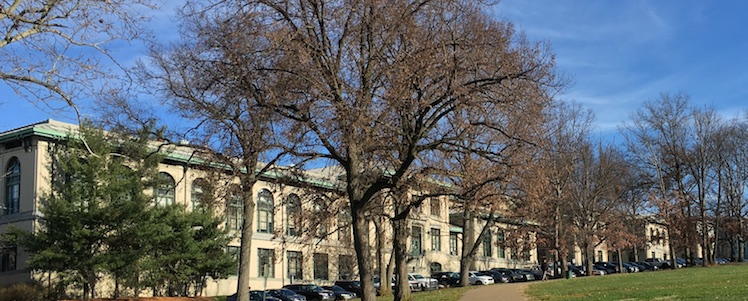
Communication
Selected Recent Publications
If the paper is not directly available, please contact the authors for a PDF copy. Author email addresses can be found on the About Us page.
Argo, N. & Ginges, J. (2014). “Beyond impasse: Addressing sacred values in international political negotiations,” in Mauro Galluccio, ed., Handbook of International Negotiation: Interpersonal, Intercultural and Diplomatic Perspectives (New York: Springer), pp.311-327. This chapter reviews the literature on sacred values in political conflict and proposes practical suggestions for negotiating amidst them.
Budescu, D. V., Por, H. H., Broomell, S. B., & Smithson, M. (2014). The interpretation of IPCC probabilistic statements around the world. Nature Climate Change, 4(6), 508-512. We report results from a multi-national study involving 25 samples in 24 countries and 17 languages that analyzes how laypeople interpret verbal descriptions of uncertainty used by the Intergovernmental Panel on Climate Change.
Canfield, C., Bruine de Bruin, W., & Wong-Parodi, G. (2016). Perceptions of electricity-use communications: effects of information, format, and individual differences. Journal of Risk Research, 1–22. We built on the health communication and graph comprehension literature to inform electricity bill design, with the goal of improving understanding, preferences for the presented communication, and intentions to save electricity.
Canfield, C.; Klima, K., Dawson. J.T. Using Deliberative Democracy to Identify Energy Policy Priorities in the United States. Energy Research and Social Science. 2015, 8, pp. 184-189. We describe the effect of a deliberative democracy forum to identify energy policy priorities.
Dewitt, B., Fischhoff, B., Davis, A., & Broomell, S. B. (2015). Environmental risk perception from visual cues: the psychophysics of tornado risk perception. Environmental Research Letters, 10(12), 124009. We investigate the public's ability to perceive the risk of tornadoes from the weather that they see around them.
Drummond, C., and Fischhoff, B. (2015) Development and Validation of the Scientific Reasoning Scale. J. Behav. Dec. Making, doi: 10.1002/bdm.1906. Describes the development and validation of the Scientific Reasoning Scale, which measures nonscientists' ability to evaluate the quality of scientific evidence.
Faria, F.; Klima, K; Posen, I.D., Azevedo, I. A New Approach of Science, Technology, Engineering, and Mathematics Outreach in Climate Change, Energy and Environmental Decision Making. Accepted at Sustainability: The Journal of Record, 2015. We describe current STEM outreach activities and qualitatively compare these to the Summer Center for Climate, Energy, and Environmental Decision Making.
Fischhoff, B. (2013). The sciences of science communication. Proceedings of the National Academy of Sciences, 110 (Supplement 3), 14033-14039. doi:10.1073/pnas.1213273110. A review of theory and method for communicating science relevant to recipients' decisions.
Fischhoff, B., & Davis, A.L. (2014). Communicating scientific uncertainty. Proceedings of the National Academy of Sciences, 111 (Supplement 4), 13664-13671. www.pnas.org/cgi/doi/10.1073/pnas.1317504111 A review of theory and method for communicating scientific uncertainty.
Krishnamurti, T., Woloshin, S., Schwartz, L. M., & Fischhoff, B. (2015). A Randomized Trial Testing US Food and Drug Administration “Breakthrough” Language. JAMA Internal Medicine, 175 (11):1856-1858. This randomized trial explores why FDA press releases with neutral terms and that routinely explain the limited evidence supporting accelerating approval might help consumers make more accurate judgments about drugs with breakthrough designation.
Wong-Parodi, G., & Fischhoff, B. (2015). The impacts of political cues and practical information on climate change decisions. Environmental Research Letters, 10(3), 034004. Acknowledgement of political identity and immersion in practical climate change information overrode the power of political identity, allowing people to learn about the climate change impacts affecting their lives.
Wong-Parodi, G., Fischhoff, B., & Strauss, B. (2014). A method to evaluate the usability of interactive climate change impact decision aids. Climatic Change, 126(3-4), 485-493. A method to assess the usefulness of climate change decision aids for informed decision making.
Wong-Parodi, G., Fischhoff, B., & Strauss, B. (2015). Resilience vs. Adaptation: Framing and action. Climate Risk Management. Framing actions to meet the challenge of climate change as building "resilience" enhanced risk perceptions but decreased motivation.
Wong-Parodi, G., & Strauss, B. H. (2014). Team science for science communication. Proceedings of the National Academy of Sciences, 111(Supplement 4), 13658-13663. The development of science communications requires sustained and meaningful collaboration between natural and social scientists that presents challenges, which can ultimately be overcome.